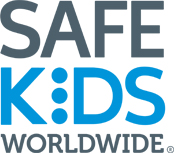You are here
Hamad International Training Centre: Reaching Families Through Healthcare Providers in Qatar
Hamad International Training Centre, part of Hamad Medical Corporation, became part of the Safe Kids network in 2013. In late 2012, visionaries at Hamad set a goal to train, equip and certify child passenger safety technicians from a variety of professions to initiate the culture change needed to address preventable injuries in Qatar, especially those on the roadway. Their strategic training program now serves as a model for countries that want to carefully select, then efficiently develop, the most appropriate safety leaders to change attitudes, beliefs and behaviors. It is a common sight in Doha to see children in the front seat sitting on laps, standing up and even leaning out windows as cars speed through congested and complicated traffic patterns. It is atypical to see adults wearing seat belts. Hamad has chosen to provide the child passenger safety training model developed and used in the U.S. to address this problem.
The course takes four days to complete and has both written and hands-on skills testing. It is taught in English and supported now in Arabic with a technician guide and written tests provided in the native language. However, what makes Hamad’s program unique is the number of medical personnel who have been enrolled and completed the course in just a little more than two years; so far, 28 of the 53 individuals who received training were doctors or nurses. There is currently one U.S. certified instructor who is a trauma surgeon at the Medical Center in Doha. The certification course requires two instructors at all times and a course now planned for January 2015, if successful, will yield two additional certified instructors. With that success, Hamad will achieve self-sufficiency. They will be able to re-certify existing technicians, hold classes to certify more advocates and mentor future instructors. Hamad has created two colorful mobile trailers that promote their program and house equipment as they conduct community education events throughout Doha to reach families. The trailers provide a consistent message: "Car seats and other restraints save lives! Use them."
Much like the movement to make child passenger safety a national focus in the U.S. was started by the medical community nearly 45 years ago, Hamad has begun their national injury prevention program, Kulluna (Arabic for All of Us) by focusing on healthcare providers and other influencers who have direct contact with patients and their families. They are reaching a broad and diverse population using trusted and technically trained subject matter specialists. Their next step is to launch school initiatives, a valuable venue for reaching kids and families with a life-saving message. Further community outreach includes car seat check-up events where parents bring their children, their cars and their curiosity to make children as safe as possible in cars. “This is really the next phase as word begins to spread to the community,” says Dr. Khalid Saifeldeen, director of HITC and formerly the chair of emergency medicine at HMC. “It is still going to take some time before we fully reap the rewards, but I am sure we Global Road Safety for Children 21 are on the right track.” The foundation is in place and it is now time to spread the message to Qatari nationals and more than one million guest worker families.







